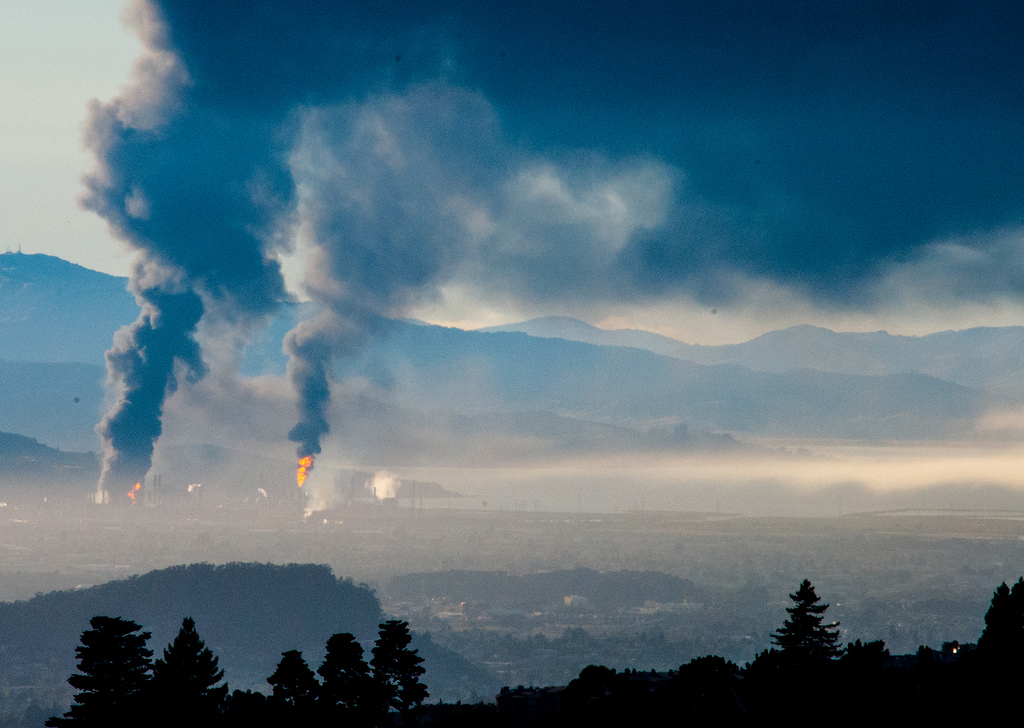Richmond's residents living in the shadow of the refinery deserve more, according to Hollin Kretzmann, staff attorney at the Center for Biological Diversity.
"Five million is chump change for Chevron," Kretzmann said.
The settlement is too low to prevent another major refinery accident, said Greg Karras, a senior scientist with Communities for a Better Environment, an environmental justice organization that advocates for residents who live near the Bay Area's refineries.
"There's no justice here," said Karras, who emphasized that he had yet to see details of the agreement.
The Richmond City Council voted 5-0 Tuesday night in closed session to approve the settlement that ends its lawsuit over the Aug. 6, 2012 blaze that sent up a huge plume of black smoke over a large swath of the East Bay. Some 15,000 nearby residents sought medical treatment, mostly for breathing problems, after the incident.
The settlement was reached days before the trial was expected to begin.
Richmond City Manager Bill Lindsay said he was happy the city achieved a deal with Chevron, but acknowledged a larger payout would have been better.
"More is always better than less ... but it is something that we negotiated, and both parties worked to get an agreement, something we thought would be fair to both sides," Lindsay said in an interview.
The lawsuit's aim was not to achieve reforms, Lindsay said. Improving safety at the refinery after the fire was the job of state and federal regulators, he said.
The fire prompted an investigation by the federal Chemical Safety Board. In 2013, the California Division of Occupational Safety and Health (Cal/OSHA) issued more than two dozen citations against the company.
Last year, new regulations to strengthen workplace and environmental safety at the state's refineries took effect.
Lindsay, responding to criticism that the settlement was too low, said the city learned over time that the legal system does not provide financial damages to a city for an accident like Chevron's 2012 fire.
"It doesn't recognize the fact that we were damaged with property taxes," Lindsay said. "That's not something that's recoverable."
Richmond couldn't recoup losses from damage to its reputation either, he said.
The city is paying its lawyers close to $1.5 million from the settlement, so it's left with around $3.5 million that's expected to go toward capital improvements like rehabilitating city-owned buildings and parks.
Chevron has called the settlement a "fair resolution," and on Wednesday afternoon a company representative responded to critics of the deal.
"Since the fire, Chevron has worked to address the underlying issues identified in their investigation report, the U.S. Chemical Safety Board's findings, and the issues raised by Cal/OSHA, including completing 100 percent component inspection of carbon steel piping systems as potentially susceptible to sulfidation corrosion," Chevron spokeswoman Patricia Canessa wrote in an email.
"Lawsuits and settlements do not spur actions to prevent incidents," Canessa said. "We have been working on improvements for years. Since the fire, we have investigated ways to improve and have cooperated with all investigators and agencies that regulate our operations. We are proud of the progress we have made."
You can see a copy of the settlement here.
